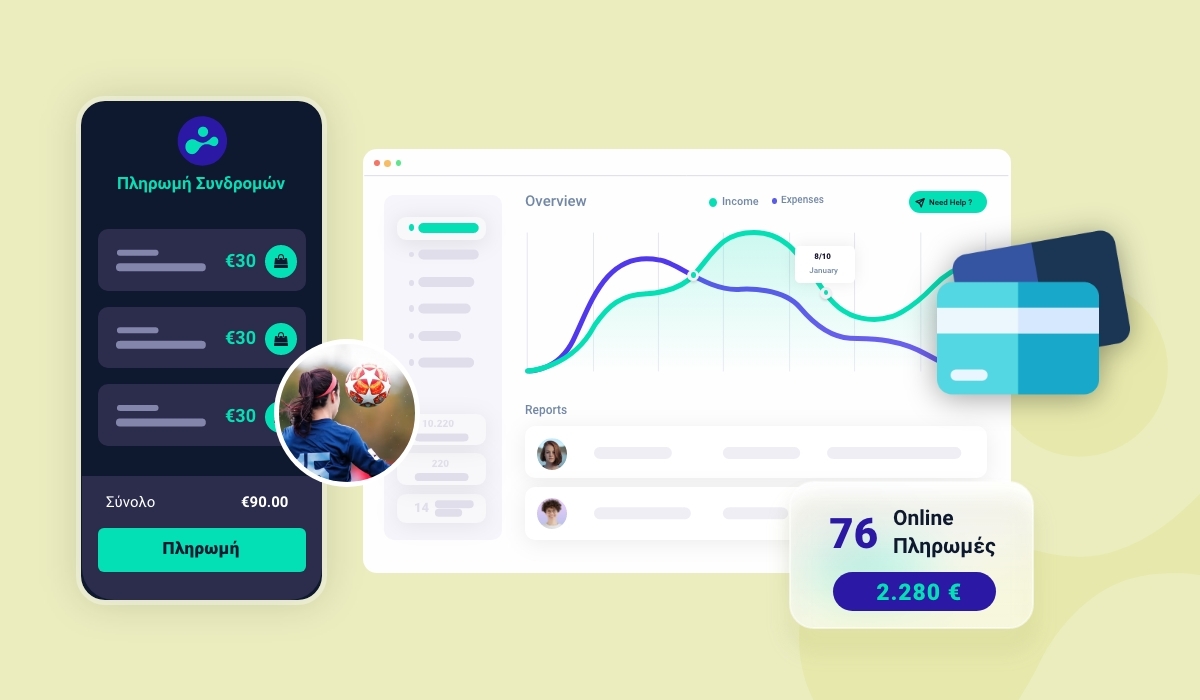It is widely accepted that every coach plays a crucial role in shaping the on-court behavior of his players. Each coach has to provide detailed feedback to each athlete, both after a series of training sessions (e.g., on a weekly or monthly basis) as well as after each individual game. This is the only way to guide their development towards the right direction and help them understand their weaknesses and, eventually, to focus on how to improve them.
At the same time, though, one should not overlook the psychological factor; a key element in sports. Establishing a structured method of evaluating players’ performance will provide each player with extra motivation, self-confidence, and inspiration to keep on elevating her game. The more professional the way of conducting the evaluation, the greatest impact on each player.
In this article, our aim is to outline the central points of a guide on how coaches should evaluate their players.
Creating a step-by-step player evaluation guide
- Defining the Parameters: The first step before conducting the evaluation is to determine the goals or the particular skills that you want to evaluate. Will it solely include parameters related to individual performance and productivity, or will it extend to factors concerning sports behavior and the way of dealing with teammates? In other words, the question is whether we will approach the player exclusively as an individual or as part of a team. It is up to the coach to choose the perspective of the evaluation.
- Statistics & Evaluation: Quantitative data are a necessary tool for evaluating players. The use of statistics is essential for the coach to be able, primarily, to grasp each player’s strengths and weaknesses and, subsequently, to support his final assessment and indicate the areas of improvement. By doing so, the coach will be able to convince his players on how they should practice in the near future in order to show quantifiable signs of improvement.
- Taking Notes: Despite the fact that statistics do provide us with a clear picture of each player’s performance, it is important to highlight that this type of evaluation is limited to quantifiable parameters (field goals made percentages, number of assists, etc.). We should not forget that there are plenty of factors influencing the player’s overall performance, which, due to their nature, cannot be quantified as statistical data. These factors relate to the athlete’s behavior and psychology. E.g. how much effort he put into motivating his teammates, his spirit of collaboration, the extent to which his performance is affected by the outcome of the last practices before the game, etc. In order for the coach to have a more comprehensive overview of his players individually as well as the condition of the team, he should take detailed notes during training sessions and games (with the help of video analysis) throughout the season. Even though statistics are a valuable guide in the personalized approach of evaluation, we should not underestimate the “instinct of the coach”.
- Culture of Communication: As we have discussed in previous articles on our blog (which were primarily directed at the administration of sports clubs), the cultural aspect plays a vital role in every facet of the operation of a sports club. So, in the specific task of evaluating players, the coach needs to have established an environment of respect, communication, and continuous feedback with them. Only in this way, his attempt of discussing, analyzing, and interacting with the players can become easier and more effective. Building an atmosphere of trust is the necessary condition for achieving the desired
Player Evaluation: Unleashing Talent
From the perspective of the coach, accurate and efficient evaluation is an essential skill. A competent coach is not the one who just brings victories to the team but, more significantly, the one who, along with victories, manages to develop the skills of his players and to disclose hidden aspects of their game. This is the difference between a successful team and a dynasty. Think about who Manu Ginobili and Tony Parker would be without Gregg Popovich or Iniesta and Xavi without Pep Guardiola.
The precise definition of goals, the use of statistics to support your conclusions, the constant note-taking on every aspect of performance and behavior, and finally, the creation of an atmosphere of trust and communication are the cornerstones of producing a proper evaluation and, more importantly, a process that will yield immediate results.
MyTeam app offers all of the aforementioned features, enabling each coach to incorporate a variety of types of evaluation, thus making his work more efficient. More precisely, within myTeam platform, in the section of evaluation, the user-coach has the option to take general notes as well as to record specific measurements on variables that reflect player’s performance. Through this approach, both the athlete and, more importantly, the coach can keep track of progress.
Book a presentation to have a look at the platform features by clicking here.



